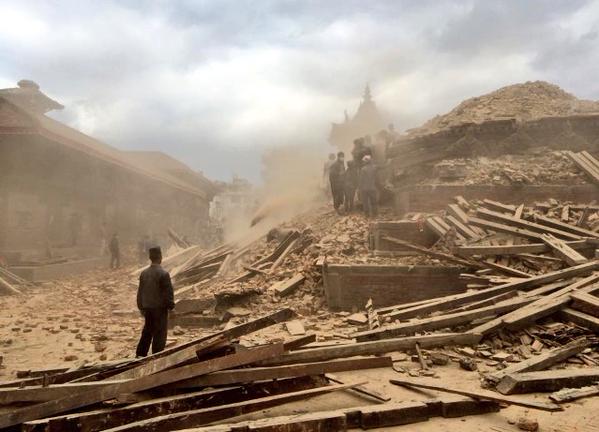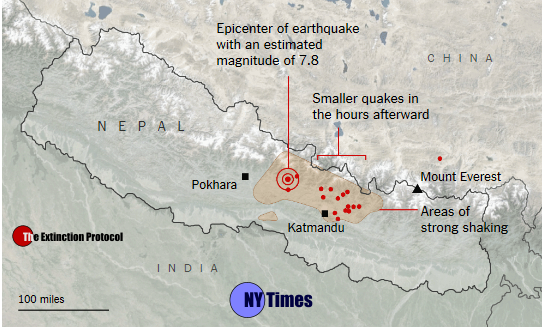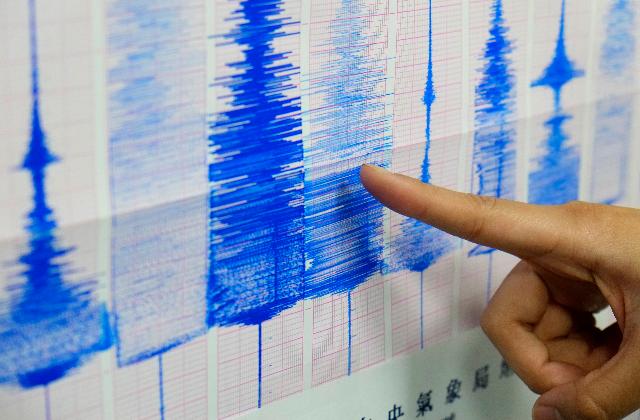"We Still Don't Have Technology That Can Accurately Predict Earthquakes!" — FACT OR FAKE?
In our 104th edition of FACT OR FAKE, SAYS Columnist Sadho digs through studies and claims doing rounds about earthquake prediction and whether or not it is possible to predict one!
On 25 April 2015, a 7.8-magnitude earthquake occurred in Nepal, destroying large parts of it. At the time of writing this story, official death toll has crossed 1,890 with more than 4,700 people injured!
"Still can't believe what I witnessed in #NepalQuake today. History crumbling, a nation in despair."
Image via Siobhan HeanueAccording to a Statistic Brain report, earthquakes kill more than 13,000 people each year, and almost 5 million lives are affected by injury or loss of property around the world. Understandably, the question that — Whether or not we have Technology that can Accurately Predict a Looming Earthquake? — comes to the mind!
Unfortunately, despite the immense technological advancements in today's world, humans still cannot predict earthquakes. At least not so that an advanced warning could be issued for a specific time at a specific location that would allow for an orderly evacuation!
As Pacific Disaster Center notes, although some major earthquakes are preceded by foreshocks, there is currently no reliable method to accurately predict the time, location, and magnitude of a quake.
Today, earthquake scientists in the United States and several other countries are working on producing “seismic weather reports” — a phrase Thomas H. Jordan, director of the Southern California Earthquake Center, uses to describe a continuously updated, local estimate of the probability of an earthquake. Just as you can look up the probability of rain in your area, the seismic forecast would let you look up the probability of an earthquake — but it wouldn’t be nearly as accurate.
These forecasts won’t tell people precisely where and when an earthquake will strike, or what magnitude it will be. Instead, the forecasts will show whether the baseline probability of an earthquake has risen.
So, will we ever be able to predict earthquakes? Maybe!
However, as Slate's John Dvorak suggests, the question of earthquake prediction can be reduced to a more tractable and straightforward question: What triggers a large earthquake?
Technically, an earthquake is a vibration that travels through the Earth's crust. Quakes can be caused by a variety of things, including meteor impacts and volcanic eruptions, and even sometimes man-made events like mine collapses and underground nuclear tests. But most naturally occurring earthquakes are caused by movement of pieces of the Earth's surface, which are called tectonic plates.
While today's scientists understand earthquakes a lot better than we did even 50 years ago, they still can't match the quake-predicting prowess of the common toad, which can detect seismic activity days in advance of a quake. So maybe studying their behaviour can help predict earthquakes more accurately?
Seismic chart of the 6.3 magnitude earthquake that struck offshore of Taiwan.
Image via AP Photo/Wally SantanaA 2010 study published in Journal of Zoology found that 96 percent of male toads in a population abandoned their breeding site five days before the earthquake that struck L'Aquila, Italy, in 2009, about 46 miles (74 kilometers) away. Researchers aren't quite sure how the toads do this, but it's believed that they can detect subtle signs, such as the release of gases and charged particles, that may occur before a quake.
This shift in the toads' behaviour coincided with disruptions in the ionosphere, the uppermost electromagnetic layer of the earth's atmosphere, which were detected using very low frequency (VLF) radio sounding. "Our study is one of the first to document animal behaviour before, during and after an earthquake. Our findings suggest that toads are able to detect pre-seismic cues such as the release of gases and charged particles, and use these as a form of earthquake early warning system," says lead author Dr Rachel Grant.
sciencedaily.com

